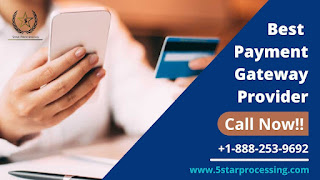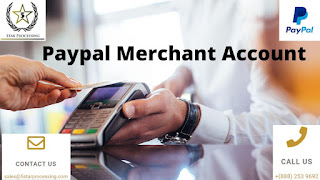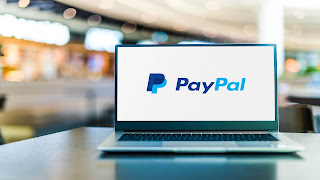Payment Gateway Providers: A best source to boost your sales
Ecommerce merchant services are a completely different animal than brick-and-mortar merchant services. While you don’t have to invest in point of sale hardware, there are other important factors to consider. Your payment gateway is probably the most important item you have to invest in. This important software application enables online payments to be accepted. For having the best online payment gateway, you need to get connected with the best and reliable payment gateway providers.
Choose a good payment portal supplier and you can accept almost any kind of payment, integrate with any electronic commerce platform and easily manage all transactions. On the other hand, when it comes to online payment processing, a bad payment gateway provider creates numerous blocks (and headaches).
Within these guides, Payment Gateway Providers will help you select the right payment portal provider for your eCommerce business. First, let's learn a little more about payment gates.
What's a gateway to payment?
A payment gateway is an e-commerce application provider that authorises e-commerce, online retail, brick, click or traditional brick and mortar credit cards or direct payment processing. Connectvwith the best payment gateway providers to get a payment gateway.
A payment gateway is an application to enable on-line payments to connect to your e-commerce platform. A payment door between your bank and the issuing bank can be considered a good thing (the bank that provided the customer their credit card).
When a customer buys a product on your website, its credit card information is transferred to the payment processing system of your trading account supplier by the payment gateway and it is communicated if the transaction is approved or refused. There are payment gates because PCI conformance standards are prohibited from sending information from the website directly to a payment processor.
You will need to fill out an application and provide financial background information in order to get a payment gateway from payment gateway providers. The majority of providers of payment gateways charge a transaction fee and a monthly fee. You need to integrate it into your ecommerce platform once you select a payment gateway provider.
How do gateways of payment work?
Payment gates are somewhat ambiguous. Let us see what a payment gateway looks like in action to help you understand better what they are and why you need one:
Step 1:
The ecommerce platform transmits an acquisition from a customer onto an ecommerce site through an encrypted connection to the payment portal.
Step 2:
The credit card information is taken over by the payment gateway and transferred to the commercial account of the business owner. In particular, the payment passes information on the credit card to the payment processor of the merchant bank account. Credit and debit card transactions between buyers and sellers can be processed by the payment processor.
Step 3:
The payment processor will then contact the credit card network of the customer (Visa, MasterCard, etc.). The card network will forward the transaction to the bank issuing the credit card.
Step 4:
Bank checks issued to ensure that the funds are available and that the transaction is not fraudulent. It approves or declines the transaction, based on the Bank's findings. Anyway, it will pass the decision back on to the network of the credit card.
Step 5:
either the sale is processed or rejected. The credit card network shall inform the payment manager of the trader account if the transaction is approved, at this point the funds will be disbursed in the trader's account. The information is also transmitted to the customer via the payment portal to the e-commerce platform (or, if there was an issue, denied).
This whole process takes place within a few seconds, and thanks to the payment pass, everything is possible.
What to Look for in Payment Gateway Providerस?
Payment gates are important—but not all providers of payment portals are identical. Here are some distinct factors for a payment gateway providers when shopping:
Security:
e-commerce transactions are more likely than individual transactions to be fraudulent, because the identity of the customer cannot be established. This requires a payment portal with state-of-the-art security features. Including point-to-point encryption (P2PE), fraud detection and data violation coverage should be provided for your payment gateway from payment gateway providers.
Cost:
You usually pay a transaction fee and a monthly subscription fee to use a commercial account. However, other costs such as the maintenance, reporting, configuration, loadback and PCI conformity fees can arise. Your fee will probably be just a few cents a transaction, and subscription fees can vary from $10 to $30 a month. We advise you to consider the total value of the payment portfolio supplier, rather than just the cheapest option, when assessing costs.
Contract
– In order that you are not locked in to anything that might not work long-term for your business, you should use a payment gateway providers with a month-to-month contract.
Compatibility:
You will want to find a payment gateway provider that integrates it, if you use a particular merchant account or e-commerce platform. It also helps to have an API if the integration needs to be adapted. Ideally, your payment portal provider works with most major retailers and e-commerce platforms (shops, big business etc) (Amazon, eBay, etc.).
Accepted methods of payment:
You do not want to miss a sale since you do not accept the preferred payment method for the customer. You want a payment gateway provider who can therefore accept a maximum number of payment methods. Ideally, Visa, Mastercard, American Express, Discover and digital wallets such as PayPal, Apple Pay or Google Pay will be accepted by your gateway. You will also like payment gateway providers who can accept foreign currencies and credit card networks, if you sell internationally.
Integrated versus non-integrated:
Some payment gateway providers with an integrated trader account are supplied by a payment gateway while others are supplied separately with various third-party commercial accounts. Integrated payment gateways usually provide flat rates and additional features such as the POS software. With unintegrated payment gates you can find the trader account that best suits your business. The choice depends on your payment requirements.




Connect with eMerchantPro to avail world class ecommerce payfor acquiring merchant account and enjoy the business reaching new heights.
ReplyDeletehttps://emerchantpro.com/